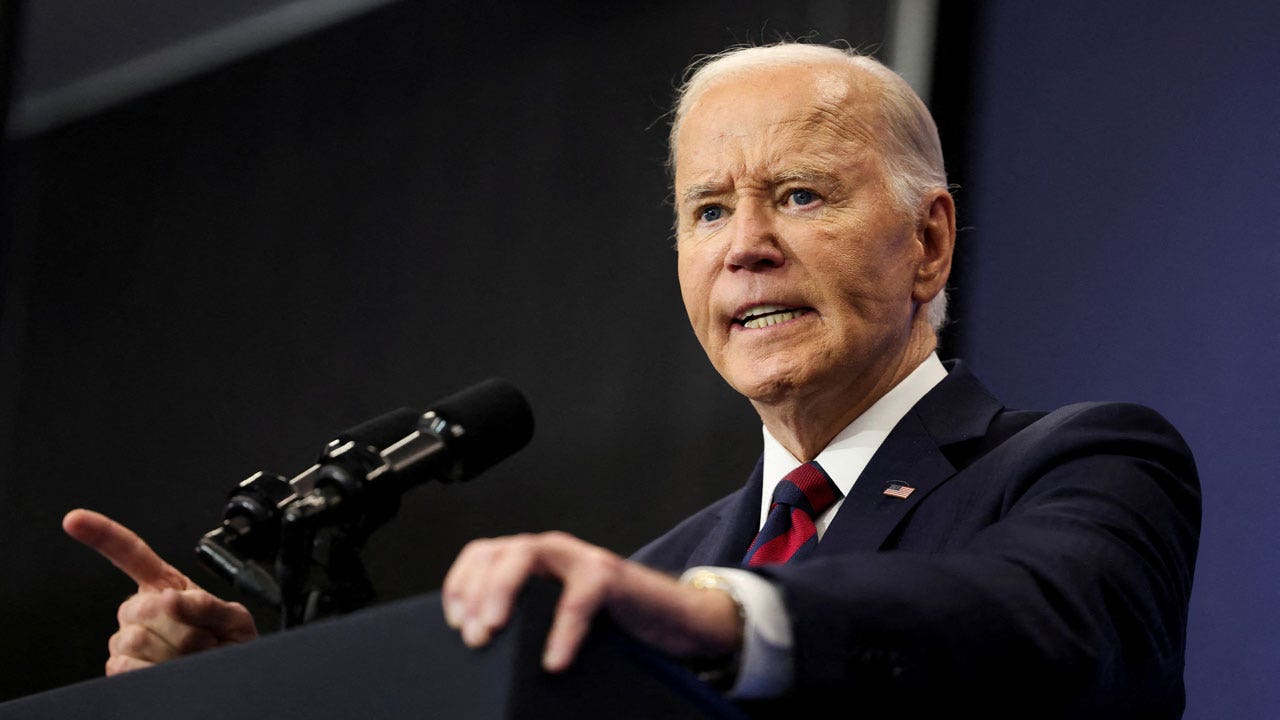North Carolina
“The National Model for How to Lose Elections”: North Carolina Republicans Pass 12-Week Abortion Ban, Overriding Governor’s Veto

North Carolina’s Republican-led legislature has officially passed a 12-week abortion ban, after overturning Governor Roy Cooper’s veto. The Tuesday night vote served as a stunning final act to what has been a closely watched clash between Cooper, a Democrat, and North Carolina Republicans over the bill—including a recent Democrat-to-Republican convert, who, despite a long pro-abortion-rights record, voted for the ban. The conclusion—a cut to abortion access for not only North Carolinians, but also for the many women in neighboring states with even harsher restrictions—has re-emboldened Democrats nationally to bring a blue wave to the state.
“The dangerous antics by the North Carolina Republican Party are the national model for how to lose elections in 2023 and 2024,” Philip Shulman, a spokesperson for liberal super PAC American Bridge 21st Century, said. “As Republican legislators and the party’s top choice for governor, Mark Robinson, attack and take away people’s basic freedoms, voters have that much more reason to vote for Democrats up and down the ticket.”
“North Carolina is a battleground state for 2024,” Jesse Ferguson, a veteran Democratic strategist tweeted after the vote. “GOP candidate is gonna own this.”
Going into Tuesday’s vote, it was unclear whether Republicans could garner enough votes to trump Cooper’s opposition to the bill. “This is a very purple state, every battle is won or lost on a very tiny, tiny number of votes,” Jenny Black, the CEO and president of Planned Parenthood South Atlantic, told Vanity Fair Monday evening. This played out the same way. The Senate voted 30 to 20 along party lines to override Cooper’s veto and the House also voted to override the veto in a final vote of 72 to 48; four Republicans who had previously said they did not favor tighter abortion restrictions supported the ban.
“North Carolinians now understand that Republicans are unified in their assault on women’s reproductive freedom and we are energized to fight back on this and other critical issues facing our state,” Cooper said in a statement following the vote Tuesday night.
The political calculus around abortion rights in North Carolina changed last month when House member Tricia Cotham defected from the Democratic ranks, providing Republicans with a slim supermajority. Previously an ardent supporter of abortion rights, Cotham voted for the 12-week ban. Her hypocrisy on the issue has been glaring. “My womb and my uterus is not up for your political grab,” she declared in a 2015 speech. Among the three other Republicans—House representatives Ted Davis and John Bradford, and state senator Michael Lee—who also staked out positions on the campaign trail against extreme abortion bans, two voted (Lee and Bradford) for the initial measure, and one (Davis) was absent. As Rolling Stone reported, just last year Bradford said he had “no intentions” of making North Carolina’s current 20-week abortion ban more restrictive. Similarly, in an op-ed, Lee staked out, “I am against bans in the first trimester.” And Davis said, “I believe in the [existing] law…. If a woman desires to have an abortion up to 20 weeks, which is the second trimester of pregnancy, she can have an abortion.”
Cooper has served as a bulwark against North Carolina Republicans’ conservative agenda for years now; the Democratic governor has vetoed more than 75 pieces of legislation since he took office in 2017. His veto, which he issued Saturday in Raleigh to a crowd of hundreds, was expected. “Standing in the way of progress right now is this Republican supermajority legislature that only took 48 hours to turn the clock back 50 years,” Cooper said. The governor spent the last week campaigning in Republican districts to urge constituents to sway their elected leaders.
Black was hoping the political pressures would work. “November wasn’t that long ago,” she said ahead of Tuesday. Instead, this episode once again thrust North Carolina into Democrats’ purview nationally. A Democratic presidential candidate hasn’t won the state since Barack Obama in 2008 (Mitt Romney won the state in 2012). And despite Cooper’s victory in 2016 and hopes that Donald Trump’s drag on the GOP would help Democrats claim a Senate seat—or two—Republicans have held a mostly firm grasp on the state federally. Still, abortion has proven to be a salient issue for voters, even in much redder states than North Carolina. With that and Joe Biden’s wider appeal in southern states, Democrats appear to be more hopeful about their prospects.
Republicans pitched the 12-week ban as something of a compromise on the abortion issue. For instance, Republican senator Phil Berger characterized the bill as “a mainstream approach to limiting elective abortions.” But Democrats and abortion rights activists have dismissed this line of argument. “Make no mistake: Your actions today will harm women,” Representative Julie von Haefen, a Democrat, said on the House floor. And a Meredith poll in February showed that 57% of respondents supported the state’s current 20-week ban or expanding access further.

North Carolina
North Carolina Dems fight GOP power shift as lawsuit targets election boards

Outgoing Gov. Roy Cooper (D-NC) and Gov.-elect Josh Stein (D-NC) filed an expanded lawsuit Monday to challenge a sweeping Republican-backed law that strips significant powers from the state’s incoming Democratic officeholders.
The move by the Democratic leaders escalates an ongoing legal battle over GOP efforts to reshape control of state agencies and boards ahead of next month’s transition.
The new legal action focuses on Senate Bill 382, which transfers the governor’s authority to appoint members of the State Board of Elections to the state auditor, a position set to be held by Republican Dave Boliek. Additionally, the law grants the auditor the power to appoint the leaders of all county election boards, further limiting gubernatorial influence.
“These blatantly partisan efforts to give control over election boards to a newly elected Republican will create distrust in our elections process and serve no legitimate purpose,” Cooper said in a statement.
The lawsuit was originally filed by Democrats over Senate Bill 749, a bill blocked earlier this year that would have overhauled the state election board structure. With SB 382 now law, Cooper and Stein are seeking to amend the lawsuit to reflect the changes, which they argue are unconstitutional and undermine democratic principles.
“In recent years, these legislative leaders have repeatedly tried and failed to seize control of the State Board of Elections for their own partisan gain,” Stein said. “This latest move insults the voters who rejected their power grab and must not stand.”
SB 382’s provisions extend beyond election oversight. It prohibits the incoming attorney general, Democrat Jeff Jackson, from taking legal positions contrary to those of the Republican-led legislature. It also reallocates $227 million to a Hurricane Helene relief fund but does not specify how the money will be used, raising concerns about delayed aid to affected communities.
CLICK HERE TO READ MORE FROM THE WASHINGTON EXAMINER
Republicans overrode Cooper’s veto of SB 382 earlier this month, using their supermajority in the state Senate. However, starting in 2025, they will lose their veto-proof majority in the House, creating a more challenging legislative landscape.
The case now heads to Wake County Superior Court as the political fight over North Carolina’s balance of power intensifies.
North Carolina
North Carolina police officer killed days before Christmas

Officer Michael T. Horan (Greenboro Police Department)
GREENBORO, N.C. – A Greensboro police officer was shot and killed on Monday morning while responding to reports of a man with a gun inside a Food Lion supermarket, authorities said. The suspect was taken into custody, though details of the incident remain under investigation.
Officer Michael T. Horan, 43, was shot just before noon at the store on Lawndale Drive in Greensboro, Assistant Police Chief Milford J. Harris said during a news conference. Horan, who joined the department in 2018, was remembered as an outstanding officer with a sterling reputation.
“He was an excellent officer. He had an outstanding reputation inside the department and in the community,” Harris said. “Together, we are mourning Officer Horan — who was a husband, father, son, and friend.”
Witness recounts Greensboro officer shooting
Ramona Miller, a shopper, told WGHP-TV she was with her 6-year-old granddaughter when the shooting occurred.
“We were on our way out, and I was purchasing a lottery ticket,” Miller said. “I was just sitting there and heard a ‘pop-pop’ and then ‘pop-pop-pop.’ I think I heard five shots. At first, I didn’t know it was a shooting, but an employee yelled out, ‘Shooting! Shooting!’”
Miller and her granddaughter left the store as police arrived. Authorities said there were no
North Carolina police officer killed in line of duty
The North Carolina State Bureau of Investigation is leading the probe into the circumstances of the shooting. Police did not release additional details about the suspect or the events leading up to the officer’s death. A heavy police presence was visible outside the supermarket in the hours following the incident.
Gov. Roy Cooper expressed his condolences to Horan’s family and colleagues in a post on X, formerly known as Twitter.
“Officer Horan was courageously doing his duty protecting Greensboro when he became the victim of a senseless act of violence,” Cooper wrote. “We are grateful for his brave, dedicated service.”
Cooper also noted that he had sent a significant number of state law enforcement officers to support the response in Greensboro.
Who is Officer Michael Horan?
Horan was a member of the U.S. Coast Guard since 2000, serving as a law enforcement officer, tactical instructor, and search-and-rescue operator. In 2019, he received a lifesaving award for rescuing a man and his son from a rip current while off duty.
“Michael Horan was a protector and a provider,” Harris said. “The loss of a man like him rips a hole in the hearts of his family, squad mates, friends, and community.”
Democratic state Sen. Michael Garrett, who represents Guilford County, called the shooting a tragic reminder of the dangers faced by law enforcement.
“During what should be a time of joy and celebration, another brave officer has been shot in the line of duty. Another family’s holiday season forever changed,” Garrett said in a statement on Facebook.
Greensboro police mourn loss of one of their own
The Food Lion store remains closed as authorities continue their investigation. The company said it is cooperating with law enforcement and offering resources to affected employees.
A memorial has been established at Greensboro Police Headquarters, where the public can pay respects to Officer Horan. Additionally, a fundraiser is being organized to support his family.
Horan leaves behind his wife and children, whose holiday season has been marked by grief instead of celebration. “Our hearts are with his family during this time,” Harris said.
The investigation into the shooting is ongoing.
Police have set up an online account to help the officer’s family.
The Source: Details in this article come from the Greenboro Police Department and the Associated Press.
North Carolina
Latest challenge to North Carolina’s power-shifting law focuses on state elections board control
RALEIGH, N.C. (AP) — North Carolina’s current governor and his successor tacked on another lawsuit Monday disputing a key provision within a GOP law that erodes the powers of several incoming Democratic state leaders — the latest in a longstanding power struggle between North Carolina’s executive and legislative branches over who controls the state’s elections.
The lawsuit challenges one of the law’s core power shifts that move the ability to appoint members of the North Carolina State Board of Elections from the governor’s authority to the state auditor’s office — which will be run by Republican Dave Boliek next year. Democratic Gov. Roy Cooper and Gov.-elect Josh Stein, who currently serves as the state attorney general, filed the suit in Wake County Superior Court on Monday, saying in the complaint that the provision is unconstitutional and violates the separation of powers.
The change to state election board appointments will take place next spring if it isn’t blocked in court. The state elections board would likely remain under GOP control for the next few years and would trickle down to county boards as well.
“We have had the same structure for our state board of elections for nearly a century and it has served North Carolina well, with fair and secure elections across our state through every cycle,” Cooper said in a news release Monday. “These blatantly partisan efforts to give control over elections boards to a newly elected Republican will create distrust in our elections process and serve no legitimate purpose.”
The suit from Cooper and Stein is the second challenge the pair has levied against the GOP-controlled state legislature concerning the law. Cooper and Stein are also contesting another provision that prevents the governor from choosing his State Highway Patrol commander.
Those alterations to the governor’s powers were part of a larger swath of changes to several statewide offices that Democrats won in November and will preside over next year — such as attorney general, state schools superintendent and lieutenant governor.
If the law withstands the court challenges, it would further underscore the GOP-led legislature’s tightened grip over the other two branches of government since Republicans took control of the General Assembly more than a decade ago. Last year, GOP supermajorities in both the House and Senate firmed up power even more.
Pending legal disputes in a few outstanding races, Republicans could lose their supermajority if Democratic challenger Bryan Cohn’s attempt to oust incumbent Republican Rep. Frank Sossamon proves successful. That would give Stein a slightly more effective veto stamp on future Republican legislation if Democratic lawmakers stay unified.
Republican legislators passed the law in both chambers earlier this month — not without scathing disapproval from crowds of protesters in the building.
The bill drew the ire of House and Senate Democrats, as well as some community organizers, who denounced it as a “power grab.” They also criticized Republican lawmakers for tying the power shifts to disaster relief funding for western North Carolina in Hurricane Helene’s aftermath. Most of the $252 million in recovery funds included in the law can’t be spent until the next time the General Assembly acts.
But GOP legislators defended the bill, with incoming House Speaker Destin Hall saying during the House vote that the changes are within the legislature’s constitutional right. Republicans also point to previous Democratic actions, such as weakening the state’s first GOP governor in 1972, as reasons necessitating the legislation.
Spokespeople for Senate leader Phil Berger and House Speaker Tim Moore — who are both defendants listed in the lawsuit — did not immediately respond to requests for comment Monday evening. A state elections board spokesperson also did not immediately respond.
Changes to the state elections board aren’t a first for GOP lawmakers. Previous attempts have been blocked by courts, including a suit last year that would move board appointment authority from the governor to the General Assembly. Berger and Moore’s attorneys moved to dismiss that case last week, and the new lawsuit from Cooper and Stein seeks to replace it.
-

 Business1 week ago
Business1 week agoFreddie Freeman's World Series walk-off grand slam baseball sells at auction for $1.56 million
-
/cdn.vox-cdn.com/uploads/chorus_asset/file/23951353/STK043_VRG_Illo_N_Barclay_3_Meta.jpg)
/cdn.vox-cdn.com/uploads/chorus_asset/file/23951353/STK043_VRG_Illo_N_Barclay_3_Meta.jpg) Technology1 week ago
Technology1 week agoMeta’s Instagram boss: who posted something matters more in the AI age
-
News1 week ago
East’s wintry mix could make travel dicey. And yes, that was a tornado in Calif.
-
/cdn.vox-cdn.com/uploads/chorus_asset/file/24924653/236780_Google_AntiTrust_Trial_Custom_Art_CVirginia__0003_1.png)
/cdn.vox-cdn.com/uploads/chorus_asset/file/24924653/236780_Google_AntiTrust_Trial_Custom_Art_CVirginia__0003_1.png) Technology3 days ago
Technology3 days agoGoogle’s counteroffer to the government trying to break it up is unbundling Android apps
-

 Politics4 days ago
Politics4 days agoIllegal immigrant sexually abused child in the U.S. after being removed from the country five times
-

 News4 days ago
News4 days agoNovo Nordisk shares tumble as weight-loss drug trial data disappoints
-

 Entertainment5 days ago
Entertainment5 days ago'It's a little holiday gift': Inside the Weeknd's free Santa Monica show for his biggest fans
-

 Politics1 week ago
Politics1 week agoSupreme Court may free Catholic charities from paying state unemployment taxes for their employees


















